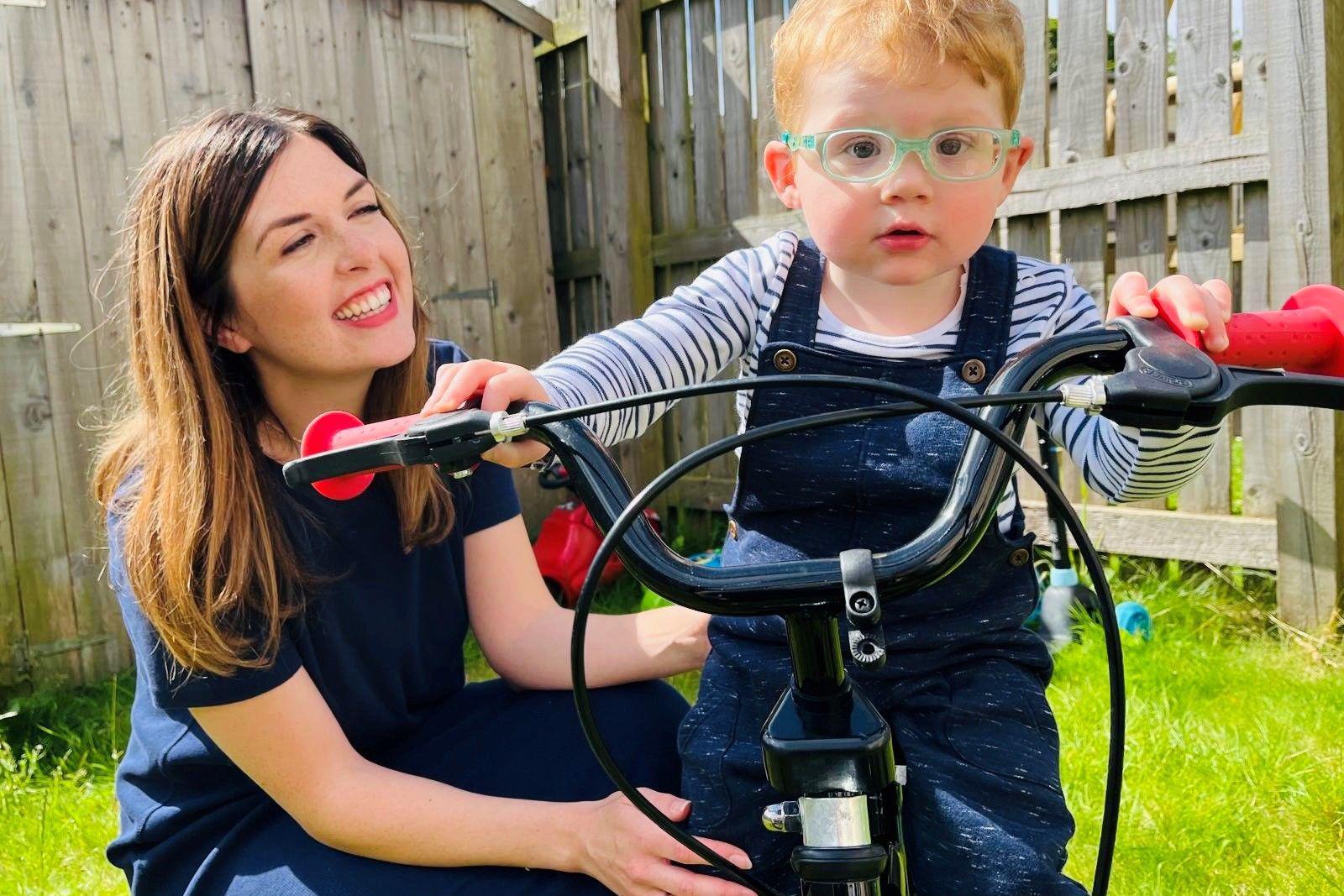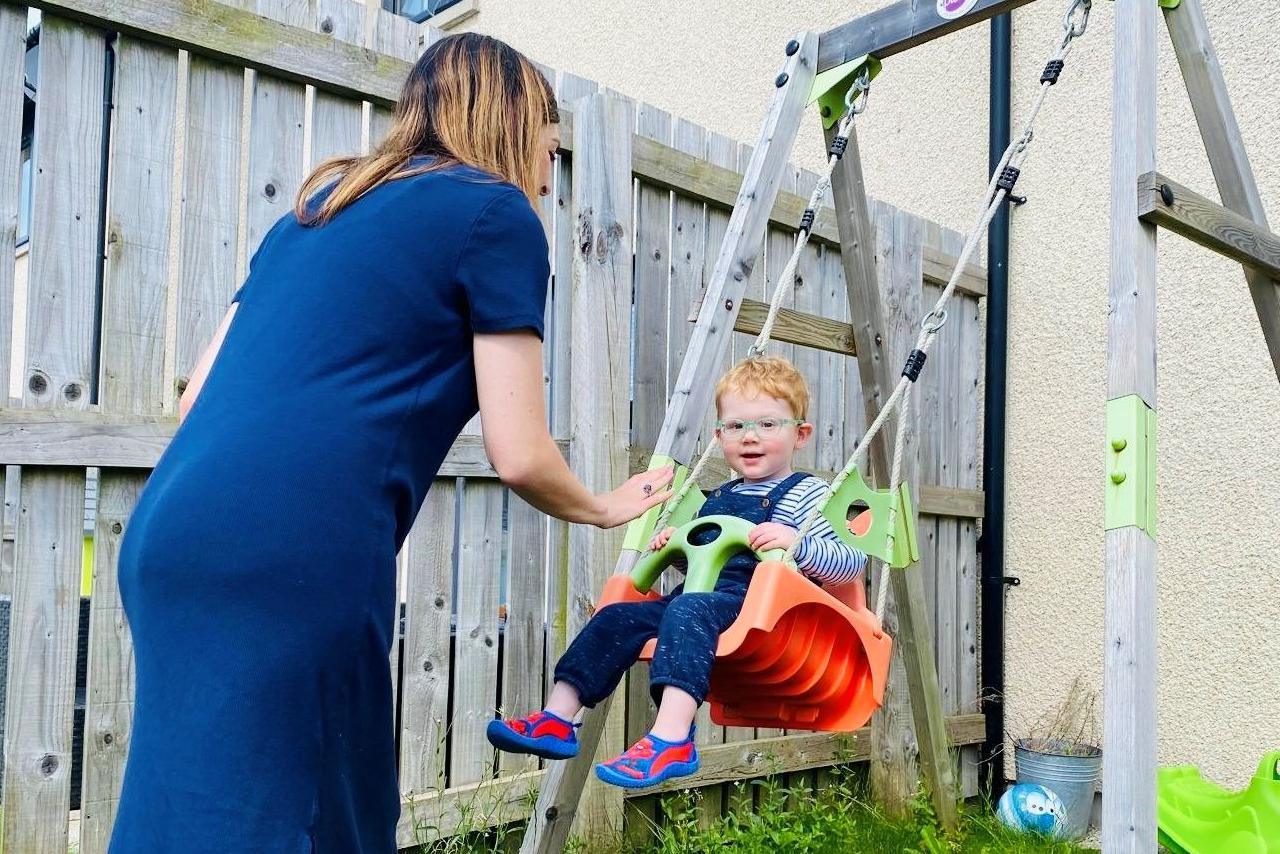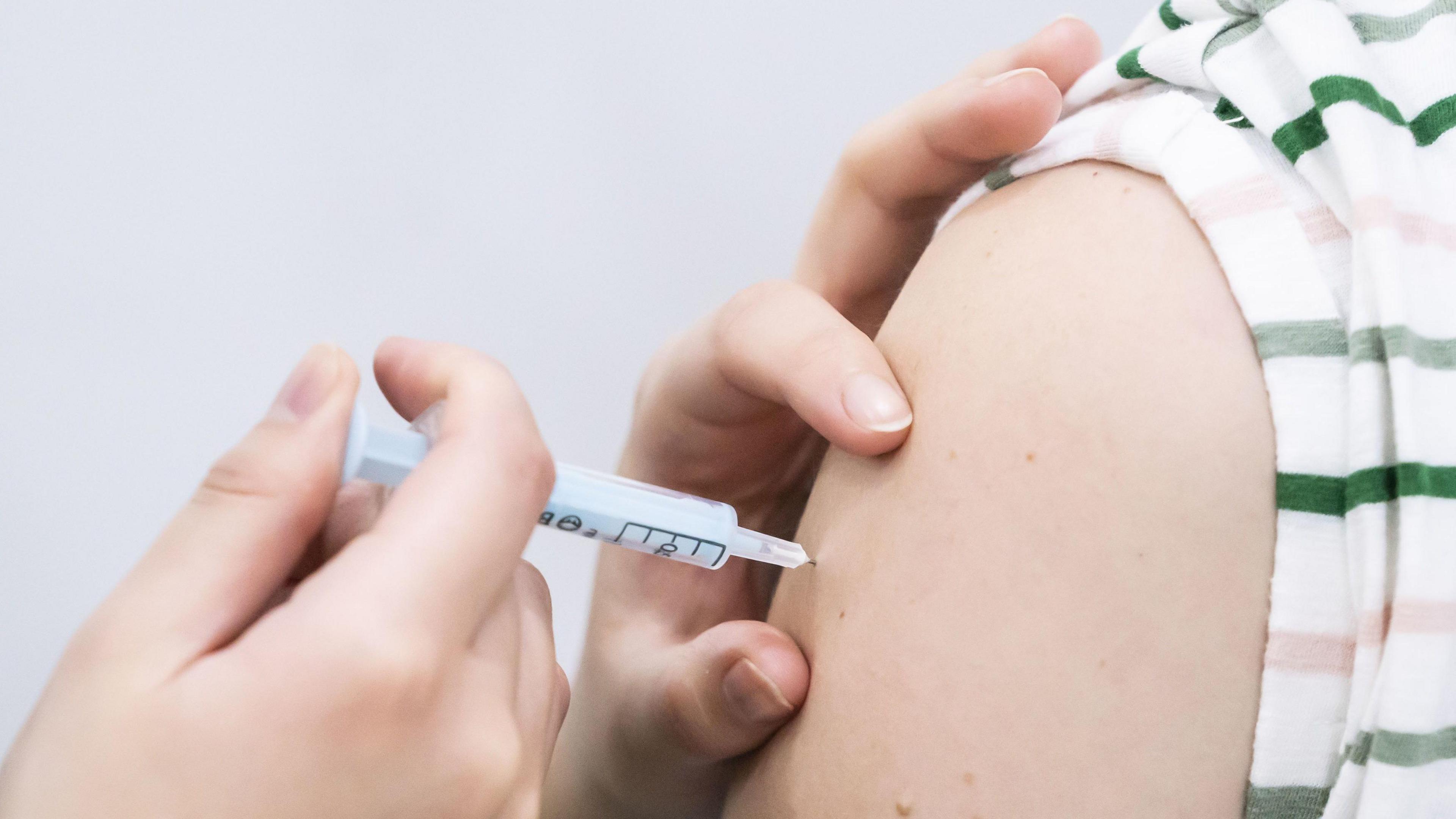New vaccine for respiratory disease rolls out in Scotland

Ailey Smith pictured with son Leo who as a newborn was seriously ill with RSV
- Published
A new vaccination programme aimed at protecting newborn babies and older adults against a dangerous respiratory disease is now being rolled out in Scotland.
The Respiratory Syncytial Virus (RSV) immunisation programme begins on Monday morning, and will be offered in the other UK nations from September.
RSV is common and highly infectious. It affects the breathing system and can cause severe illness in vulnerable groups, including infants and older people.
It is the leading cause of emergency respiratory admissions to hospital in infants.
In 2022-23, more than 1,500 infants under the age of one and more than 500 people aged 75 and over were hospitalised with RSV, according to Public Health Scotland.
Across the UK as a whole it results in 25-30 infant deaths each year.
While for many the symptoms are mild, the infection is easily spread and 90% of children will catch it within the first two years of their lives.
'Jump at the chance'

Leo recovered from the illness, but Ailey says pregnant women should "jump at the chance"to protect their children.
Ailey Smith, of Aberdeen, is a mother-of-two who knows from first-hand experience how serious RSV can be for babies.
Her two-year-old son developed the infection and did not suffer complications but a short time later her newborn son Leo developed a fever.
“I contacted NHS24 and they said to take him in straight away," she said.
"They did a number of tests and he was positive for RSV and a UTI (Urinary Tract Infection).”
Between days three and five of his infection he was struggling to breathe.
"It was just difficult to watch because there was very little we could do other than manage the symptoms.
"He couldn’t feed, they had to tube feed him.
"We were trying to get him to sleep in between but a lot of the coughing was very distressing. It would be like he was choking.”

Ailey said caring for her unwell baby was hard - especially as she was still recovering from a C-Section.
"My husband and I were trying to take shifts but mostly it was me.
"I would do all-nighters in the hospital because he was a newborn and he didn’t really have any kind of schedule and he was very unwell.
"We were exhausted and emotional."
“With regard to the fact that there is now a vaccine for pregnant women, I would jump at the chance if I was in that position again," she said.
"It was such a difficult thing to go through. If you can avoid going through that, I would do anything that I could."
Winter pressures on NHS
The vaccine is being administered on the advice of the UK's Joint Committee on Vaccination and Immunisation (JCVI).
Doses are being offered to women from 28 weeks into their pregnancies, to protect newborns, as well as those aged 75 and as a one-off catch up for those aged 75 to 79.
Dr Sam Ghebrehewet, head of immunisation and vaccination at Public Health Scotland, said: "RSV can be very serious for those who are more vulnerable, such as newborns, infants and older adults.
"If you are eligible, getting vaccinated is the best and simplest thing you can do to protect yourself or your newborn baby from RSV."
First Minister John Swinney said Scotland's early rollout of the vaccination programme could help relieve winter pressures on the NHS.
He added: “It is equally important that those aged 75-79 take up their offer of this vaccine."
What are the symptoms of RSV?
Symptoms of RSV usually start within a few days of getting infected.
According to the NHS, external, most people only get cold-like symptoms, such as:
a runny or blocked nose
sneezing
a cough
tiredness
a high temperature
Babies with RSV may also be irritable and feed less than usual.
If RSV leads to a more serious infection (such as bronchiolitis) it may also cause:
a cough that gets worse
faster breathing or long gaps between breaths
difficulty feeding or eating
noisy breathing (wheezing)
Related topics
- Published18 April 2024